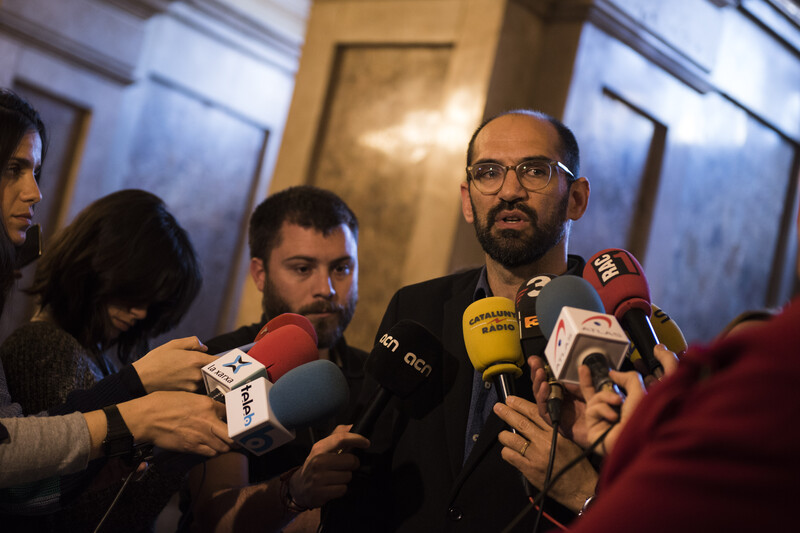Rights and Accountability 14 July 2020

Roger Torrent, the president of Catalonia’s parliament, was targeted with spyware made by Israeli firm NSO Group. (Ajuntament de Sabadell / Flickr)
An Israeli court on Sunday denied a petition backed by Amnesty International demanding that Israel’s defense ministry revoke the export license of cyberwarfare company NSO Group.
Judge Rachel Lavi-Barkai ruled that the petitioners failed to provide evidence to show that the Israeli company’s technology was used to spy on Amnesty personnel.
“I’ve been convinced that the oversight procedures and the handling of requests for permits for defense export are meticulous,” Lavi-Barkai said of NSO Group’s vetting process, according to Israeli daily Haaretz.
The court’s decision comes despite “mountains of evidence” that surveillance tools made by NSO Group were used to target journalists and human rights defenders, said Danna Ingleton, a tech specialist for Amnesty.
Ingleton said the “disgraceful ruling is a cruel blow to people put at risk around the world by NSO Group selling its products to notorious human rights abusers.”
“NSO Group continues to profit from human rights abuses with impunity,” she added.
The legal action over NSO Group was pursued by some 30 petitioners in May 2019.
Amnesty International supported the effort after one of its staff was targeted in 2018 using Pegasus, a sophisticated cyber weapon produced by NSO Group.
Pegasus allows its remote operators to hijack smartphones undetected and extract massive amounts of private data.
NSO Group welcomed the court’s decision, saying “allegations did not have an evidentiary basis.”
NSO Group claims its products are used “exclusively by government intelligence and law enforcement agencies to fight crime and terror.”
Meanwhile, a top Catalan politician has been the latest target of NSO Group software.
The phone of Roger Torrent, the president of Catalonia’s regional parliament, was infected with Pegasus, according to a joint investigation by The Guardian and El País.
The messaging service WhatsApp alerted Torrent that his phone had been hacked with Pegasus by exploiting a critical vulnerability to install spyware on phones.
“It seems wrong that politicians are being spied on in a democracy with the rule of law,” Torrent said.
“It also seems to me to be immoral for a huge amount of public money to be spent on buying software that can be used as a tool for the persecution of political dissidents.”
Two other pro-independence Catalan figures have been targeted as well.
Anna Gabriel, a former member of Catalonia’s parliament, was informed by Canadian cybersecurity organization Citizen Lab that her phone was infiltrated.
Jordi Domingo was targeted by the software as well.
Although Domingo supports Catalan independence, he believes that he was targeted mistakenly and speculates that the real target was “a prominent lawyer who shares his name and helped to draft the Catalan constitution,” according to The Guardian.
Given NSO Group’s insistence that it sells its software exclusively to governments, Torrent believes the Spanish government is the main suspect in the recent hackings.
The office of Spain’s prime minister said it had “no evidence” that the three Catalan politicians “have been the targets of hacking via their mobiles.” It also insisted that “any operation involving a mobile phone is always conducted in accordance with the relevant judicial authorisation.”
WhatsApp in 2019 released an update to fix the vulnerability which was used to spy on 1,400 people.
“Until now, it has not been suggested that any European country used NSO Group’s software in the 2019 attacks,” according to The Guardian.
Facebook, which owns WhatsApp, has also sued the Israeli firm.
Despite the notorious role of NSO Group in violating the rights of journalists and human rights defenders around the world, several European countries, including The Netherlands and Sweden, have been cozying up to Israel’s tech industry, which is intricately tied to its cyberwarfare and espionage apparatuses.




